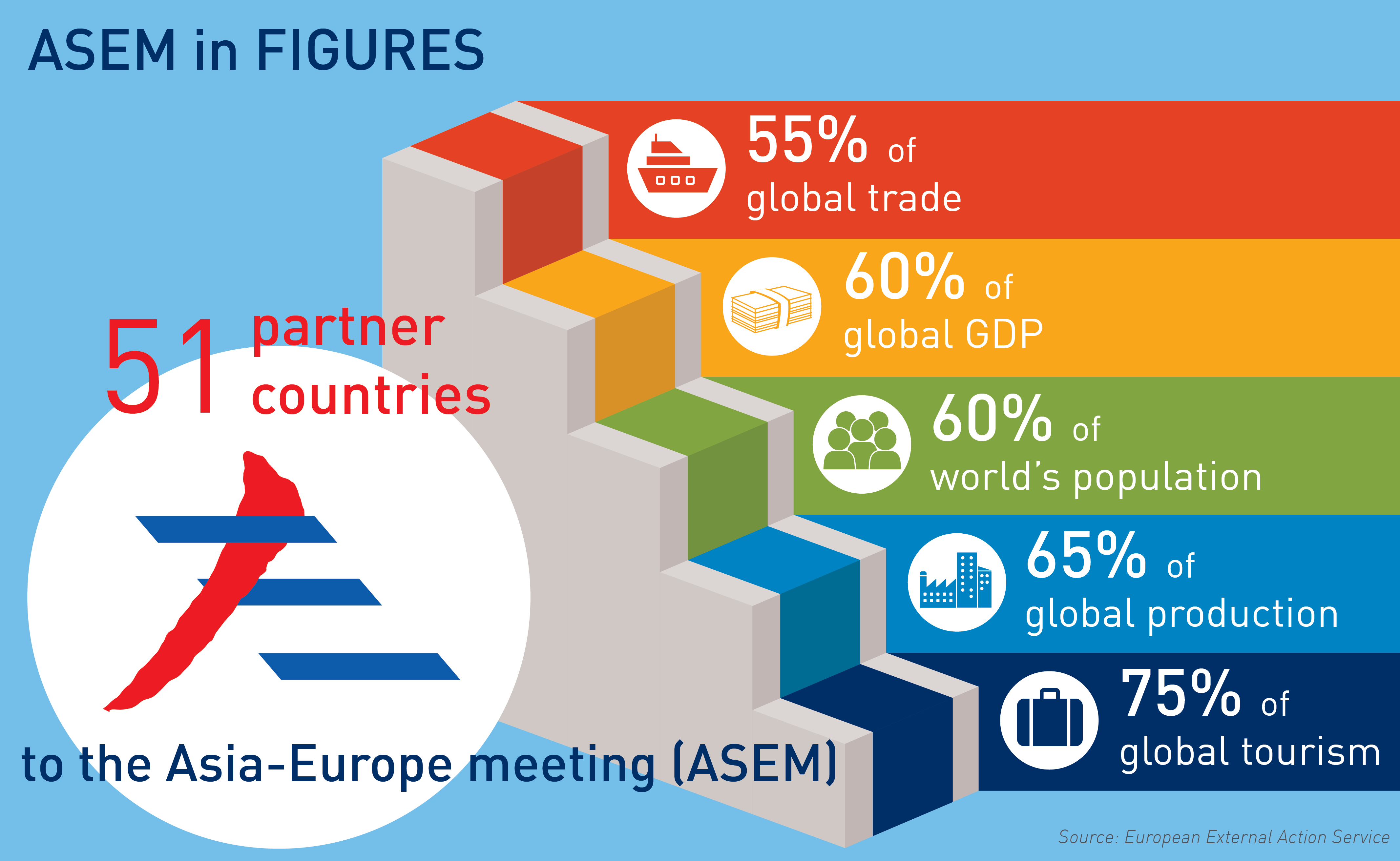BusinessEurope Headlines No. 2018-30
Gattaz: We need a new global order, not a global mess

“In a world undergoing profound changes, companies are a crucial factor of adaptation while ensuring stability. My main task as President of BusinessEurope will be to make sure that uncertainties we are facing lead to a new global order rather than to a global mess”, said Pierre Gattaz in the opening gala of the European Forum for New Ideas (EFNI). The 8th edition of this forum is taking place from 26-28 September in Sopot, Poland, and has been organised since 2011 by the Polish Confederation Lewiatan in cooperation with BusinessEurope. The event, which gathers over a thousand participants – representatives of the world of business, science, culture and administration, Polish and European alike, is dedicated to global trends, new ideas and the future of Europe. During his speech, President Gattaz highlighted that “the next years will be decisive. Free movement of goods, services, capital and people is an absolute 'must' to build a strong Europe". And to end up with an improved global trade system, "we will need to deepen existing partnerships and develop new ones, especially in our neighbourhood”, he concluded.
Contact: Daniele Olivieri
Photo copyright: K.RAINKA
Video message on on the transition to a low-carbon economy
Director General Markus J. Beyrer talks about industry engagement in making the transition to a low-carbon economy a reality. Read or watch his full speech for the Global Wind Summit 2018 in Hamburg.
Facts & Figures
More information on the ASEM and its official business side event, the Asia-Europe Business Forum (AEBF). Click here to register and participate.
Our comment
Sustainable Development Goals and the role of the private sector
By Sofia Bournou, Senior Adviser for International Relations
 Adopted in 2015 by 193 members of the United Nations, the Sustainable Development Goals (SDGs) constitute a comprehensive framework of action to reach the Agenda 2030. The 17 SDGs cover a broad number of areas – poverty reduction, improving health, promoting quality education, supporting decent work and economic growth, climate action, peace, justice and strong institutions.
Adopted in 2015 by 193 members of the United Nations, the Sustainable Development Goals (SDGs) constitute a comprehensive framework of action to reach the Agenda 2030. The 17 SDGs cover a broad number of areas – poverty reduction, improving health, promoting quality education, supporting decent work and economic growth, climate action, peace, justice and strong institutions.
They also include a strong call for building partnerships to achieve the SDGs. This is a critical point that showcases that only through the collaboration between governments, the private sector and the broader civil society the implementation of SDGs can be successful. Therefore, the role of the private sector is a critical part of these multi-stakeholder efforts. As representatives of European business, we would like to share a few thoughts on how companies can best contribute to this process and what needs to be done to support, promote and accellerate this.
First of all, for companies in Europe, sustainability is not a new concept. It is reflected in their commitments and strategies, in their delivery of solutions that can improve the balance between the three P’s: people, profits, planet. European companies are leaders in this area. They innovate constantly to create new products and services that contribute to tackling today’s challenges, for instance related to the environment and climate change, or demographic and social issues.
Furthermore, the level of awareness on SDGs among companies in Europe is rising and many work towards integrating them in their business plans and strategies. This means incorporating the principles of sustainability throughout their production chain, from sourcing to the end user. This is not an easy process and requires not only willingness, but also capacity building and resources. For instance, operating in the framework of Global Value Chains (GVCs), companies face a number of challenges, having to master complex production processes, scattered around different locations, in many cases using inputs that come from many different suppliers.
The question is how to create added value in a “sustainable” manner. How to build a business model that is competitive while, at the same time, promoting high level environmental and social standards. It is important to understand that there is not one model that works for every type of company in every sector. Solutions need to be tailored to address the needs of each company in order for them to be able to deliver the most in the framework of sustainability and SDGs.
This is especially the case for small and medium-sized enterprises (SMEs) or companies originating in developing countries. If a large company has the resources and the capacity to prioritise and integrate the SDGs in its structure, this is not a given for a smaller company or one that is located in a developing country. Those companies need help. In our experience, the most effective assistance comes through the establishment of partnerships. These are partnerships with governments that elaborate coherent policies to support sustainability and the implementation of SDGs, with other, usually larger, companies in their supply chains that can share their experience and, of course, with local communities and the broader civil society that engage in this process.
The EU has committed to implementing the SDGs and is taking important steps into this direction in collaboration with Member States, institutions, the private sector and the civil society. BusinessEurope is part of these efforts and will continue to contribute towards effective, balanced and inclusive solutions.
Contact: Sofia Bournou
Brexit will have cross-cutting implications for business
 “Until the EU and the UK agree on a legally binding withdrawal text, a cliff edge Brexit cannot be excluded. Thus, a timely conclusion of the Withdrawal Agreement with its status-quo like transition period is of utmost importance to businesses on both sides of the Channel,” Luisa Santos, Chair of the BusinessEurope Brexit Task Force, said in a workshop in the European Parliament on 24 September. The workshop “Brexit and Industry and Space Policy” was organised by the think tank Bruegel as part of a series of discussions on Brexit, which aims to inform Members of the European Parliament (MEPs) that are part of the Committee on Industry, Research and Energy (ITRE) on the implications of Brexit for different areas. Santos’ intervention was on the implications of Brexit for European business. Besides presenting a number of cross-cutting consequences of Brexit for European enterprises in the area of customs and trade, regulatory framework, digital or research and innovation, she also informed MEPs about BusinessEurope’s work to ensure that companies are prepared even in a no-deal scenario. “We are facing a complex challenge and we need to work together with governments and business to mitigate the negative impacts,” Santos said.
“Until the EU and the UK agree on a legally binding withdrawal text, a cliff edge Brexit cannot be excluded. Thus, a timely conclusion of the Withdrawal Agreement with its status-quo like transition period is of utmost importance to businesses on both sides of the Channel,” Luisa Santos, Chair of the BusinessEurope Brexit Task Force, said in a workshop in the European Parliament on 24 September. The workshop “Brexit and Industry and Space Policy” was organised by the think tank Bruegel as part of a series of discussions on Brexit, which aims to inform Members of the European Parliament (MEPs) that are part of the Committee on Industry, Research and Energy (ITRE) on the implications of Brexit for different areas. Santos’ intervention was on the implications of Brexit for European business. Besides presenting a number of cross-cutting consequences of Brexit for European enterprises in the area of customs and trade, regulatory framework, digital or research and innovation, she also informed MEPs about BusinessEurope’s work to ensure that companies are prepared even in a no-deal scenario. “We are facing a complex challenge and we need to work together with governments and business to mitigate the negative impacts,” Santos said.
Contact: Benedikt Wiedenhofer
EU companies seek support against unilateral U.S. secondary sanctions
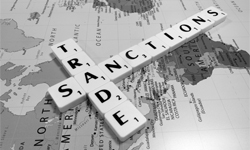 In two letters signed on 24 September 2018 and addressed to European Commission President Jean-Claude Juncker and the U.S Secretary of the Treasury Steven Mnuchin, BusinessEurope shared its concerns on the potential impact that secondary sanctions imposed by the U.S. under the Countering America’s Adversaries Through Sanctions Act (CAATSA) may have on EU companies. The letters outline the benefits of a coordinated, multilateral approach to sanctions and highlight the unintended consequences unilateral secondary U.S. sanctions may have in the EU, if the specificities of our markets are not taken into consideration. BusinessEurope also calls for the effective support of the EU to companies that may be impacted.
In two letters signed on 24 September 2018 and addressed to European Commission President Jean-Claude Juncker and the U.S Secretary of the Treasury Steven Mnuchin, BusinessEurope shared its concerns on the potential impact that secondary sanctions imposed by the U.S. under the Countering America’s Adversaries Through Sanctions Act (CAATSA) may have on EU companies. The letters outline the benefits of a coordinated, multilateral approach to sanctions and highlight the unintended consequences unilateral secondary U.S. sanctions may have in the EU, if the specificities of our markets are not taken into consideration. BusinessEurope also calls for the effective support of the EU to companies that may be impacted.
![]() Contact: Sofia Bournou
Contact: Sofia Bournou
Moving the circular economy transition further
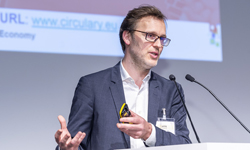 “After one year and a half, we have moved from 40 to almost 130 examples of companies’ good practices posted on our Circular Economy Industry Platform. It gives an indication of how relevant circularity is to companies and things on the ground are moving”, said Alexandre Affre, BusinessEurope Director for Industrial Affairs, at the conference “Bringing the action plan to life: towards a fact-based circular economy”, which took place in Vienna on 20 September. The conference discussed the circular economy transition and policy fields that should be prioritised. “Public authorities should act as a facilitator and raise awareness to accelerate the transition, but be vigilant on how they regulate”, Affre added. See more info about the platform here.
“After one year and a half, we have moved from 40 to almost 130 examples of companies’ good practices posted on our Circular Economy Industry Platform. It gives an indication of how relevant circularity is to companies and things on the ground are moving”, said Alexandre Affre, BusinessEurope Director for Industrial Affairs, at the conference “Bringing the action plan to life: towards a fact-based circular economy”, which took place in Vienna on 20 September. The conference discussed the circular economy transition and policy fields that should be prioritised. “Public authorities should act as a facilitator and raise awareness to accelerate the transition, but be vigilant on how they regulate”, Affre added. See more info about the platform here.
Contact: Alexandre Affre
Photo copyright: ÖWAV/Titzer
China should focus on implementing reform plans to improve business confidence
 “While China has outlined broad areas in which it wants to pursue economic reform at the 19th National Congress of the Communist Party of China last year, the focus should now be on implementation”, Luisa Santos, Director of International Relations said at the EU-China Business Forum in Brussels on 25 September. “European business that would like to become active in China is particularly keen to see a swifter implementation of reforms linked to improving market access“, she pointed out. While the EU and China exchanged a first offer on market access at the recent EU-China Summit held on 17 July 2018 in Beijing, Santos highlighted that negotiations have been ongoing since 2013 and that faster progress on these negotiations will likely improve business confidence further. European business is also keen to see China take up an active role in the World Trade Organisation (WTO) reform agenda and contribute more to the multilateral trading system as one of its important beneficiaries. The EU China Business Forum was organized by the European Union Chamber of Commerce in China.
“While China has outlined broad areas in which it wants to pursue economic reform at the 19th National Congress of the Communist Party of China last year, the focus should now be on implementation”, Luisa Santos, Director of International Relations said at the EU-China Business Forum in Brussels on 25 September. “European business that would like to become active in China is particularly keen to see a swifter implementation of reforms linked to improving market access“, she pointed out. While the EU and China exchanged a first offer on market access at the recent EU-China Summit held on 17 July 2018 in Beijing, Santos highlighted that negotiations have been ongoing since 2013 and that faster progress on these negotiations will likely improve business confidence further. European business is also keen to see China take up an active role in the World Trade Organisation (WTO) reform agenda and contribute more to the multilateral trading system as one of its important beneficiaries. The EU China Business Forum was organized by the European Union Chamber of Commerce in China.
Contact: Maurice Fermont
Supporting privacy: an industry roundtable
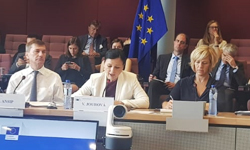 On 20 September, BusinessEurope Director, Martynas Barysas and Adviser, Patrick Grant took part in a roundtable with The European Commission Vice-President Andrus Ansip and Commissioner for Justice, Consumers and Gender Equality Věra Jourová on the General Data Protection Regulation (GDPR) implementation, the upcoming review of the Privacy Shield and ePrivacy developments. BusinessEurope reported that while challenging for companies, the ongoing shift to GDPR compliance was overall encouraging. We stated that although an important institution in the review process, the European Parliaments’ premature call to annul the Privacy Shield caused unnecessary uncertainty before the 2018 review takes place in October. The Privacy Shield is an important mechanism for businesses both sides of the Atlantic as many European businesses continue to rely on American service providers that are Privacy Shield certified. We continue to attempt to assist the Commission in finding a workable solution that would actually deliver the objectives of the ePrivacy proposal.
On 20 September, BusinessEurope Director, Martynas Barysas and Adviser, Patrick Grant took part in a roundtable with The European Commission Vice-President Andrus Ansip and Commissioner for Justice, Consumers and Gender Equality Věra Jourová on the General Data Protection Regulation (GDPR) implementation, the upcoming review of the Privacy Shield and ePrivacy developments. BusinessEurope reported that while challenging for companies, the ongoing shift to GDPR compliance was overall encouraging. We stated that although an important institution in the review process, the European Parliaments’ premature call to annul the Privacy Shield caused unnecessary uncertainty before the 2018 review takes place in October. The Privacy Shield is an important mechanism for businesses both sides of the Atlantic as many European businesses continue to rely on American service providers that are Privacy Shield certified. We continue to attempt to assist the Commission in finding a workable solution that would actually deliver the objectives of the ePrivacy proposal.
Contact: Patrick Grant
Key role for European Social Fund in supporting social partners capacity building
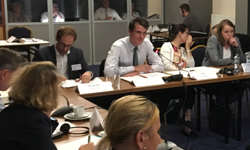 The implementation of social dialogue results requires enhanced capacity building support for national social partners. Enhanced capacity is also important for social partners to be able to fully play their role in the European semester process, particularly as concerns the implementation of labour market reforms that result from country-specific recommendations. To make progress, the European Social Fund should be better used to support social partners capacity building needs. This was one of the main messages given by BusinessEurope Social Affairs Director Maxime Cerutti during the third cluster seminar on “Reinforcing the EU social dialogue and industrial relations”, organised by the European social partners in Bratislava on 20 and 21 September 2018. This seminar brought together social partners representatives from Slovakia, France, Netherlands and Romania.
The implementation of social dialogue results requires enhanced capacity building support for national social partners. Enhanced capacity is also important for social partners to be able to fully play their role in the European semester process, particularly as concerns the implementation of labour market reforms that result from country-specific recommendations. To make progress, the European Social Fund should be better used to support social partners capacity building needs. This was one of the main messages given by BusinessEurope Social Affairs Director Maxime Cerutti during the third cluster seminar on “Reinforcing the EU social dialogue and industrial relations”, organised by the European social partners in Bratislava on 20 and 21 September 2018. This seminar brought together social partners representatives from Slovakia, France, Netherlands and Romania.
Contact: Robert Plummer
Reaping the benefits and tackling the challenges of the digital transformation
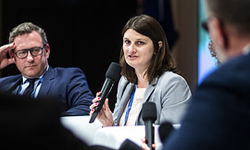 The digital transformation offers opportunities for employment growth, access to the labour market, and flexibility for companies and workers, but to realise these opportunities we need to adapt our labour markets, education and training systems and work organisation. This was the key message of Rebekah Smith, Deputy Director for Social Affairs at the 19 September Austrian Presidency conference on digitalisation of work. She also stated that in dealing with the challenges related to labour law, working conditions and access to social protection, we need to avoid stifling innovation and development of new business models. “Policy approaches need to reflect the variety of forms of work, after all, platform work is very diverse, as is the employment status of platform workers”, she highlighted, adding that this is for the national level to define, respecting the different industrial relations systems and practices.
The digital transformation offers opportunities for employment growth, access to the labour market, and flexibility for companies and workers, but to realise these opportunities we need to adapt our labour markets, education and training systems and work organisation. This was the key message of Rebekah Smith, Deputy Director for Social Affairs at the 19 September Austrian Presidency conference on digitalisation of work. She also stated that in dealing with the challenges related to labour law, working conditions and access to social protection, we need to avoid stifling innovation and development of new business models. “Policy approaches need to reflect the variety of forms of work, after all, platform work is very diverse, as is the employment status of platform workers”, she highlighted, adding that this is for the national level to define, respecting the different industrial relations systems and practices.
Contact: Rebekah Smith
Photo copyright: BKA/Christopher Dunker
Implementation of the Paris climate agreement is crucial for COP24
 “The Paris Agreement is a major opportunity for European business to be at the forefront of solutions to tackle climate change”, said BusinessEurope Adviser Leon de Graaf during a roundtable event in Sopot, Poland, on the role of business in implementing climate resolutions taken by the Conference of the Parties (COP). The implementation of the Paris Agreement remains a challenge, he pointed out. “Firstly, we are concerned with the progress made – or rather lack of it – regarding the rules and procedures to implement the Paris Agreement, known as the Paris Rulebook. The second challenge is the fact that the climate ambitions between the major economies are still significant. The EU has to work together with its major trading partners to align climate ambitions as soon as possible”, de Graaf stated. The roundtable was part of the European Forum for New Ideas (EFNI).
“The Paris Agreement is a major opportunity for European business to be at the forefront of solutions to tackle climate change”, said BusinessEurope Adviser Leon de Graaf during a roundtable event in Sopot, Poland, on the role of business in implementing climate resolutions taken by the Conference of the Parties (COP). The implementation of the Paris Agreement remains a challenge, he pointed out. “Firstly, we are concerned with the progress made – or rather lack of it – regarding the rules and procedures to implement the Paris Agreement, known as the Paris Rulebook. The second challenge is the fact that the climate ambitions between the major economies are still significant. The EU has to work together with its major trading partners to align climate ambitions as soon as possible”, de Graaf stated. The roundtable was part of the European Forum for New Ideas (EFNI).
Contact: Leon de Graaf
Photo copyright: K.RAINKA
The Digital Europe programme: supporting digitalisation
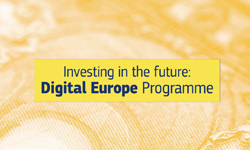 BusinessEurope recently sent a letter to the EU institutions in relation to the ongoing debate in relation to the Digital Europe programme. As part of the multiannual financial framework (MFF), the Digital Europe programme is the first solely digital related fund stemming from it. The €9.2 billion fund aims to support digital single market policy to enable citizens and businesses to benefit from digital transformation. BusinessEurope has long been calling for this financial support to stimulate the investment needed to fill the existing digital investment gap. However, we still believe that improvements can be made to enable greater support for European industries attempting to digitise their sectors.
BusinessEurope recently sent a letter to the EU institutions in relation to the ongoing debate in relation to the Digital Europe programme. As part of the multiannual financial framework (MFF), the Digital Europe programme is the first solely digital related fund stemming from it. The €9.2 billion fund aims to support digital single market policy to enable citizens and businesses to benefit from digital transformation. BusinessEurope has long been calling for this financial support to stimulate the investment needed to fill the existing digital investment gap. However, we still believe that improvements can be made to enable greater support for European industries attempting to digitise their sectors.
![]() Contact: Patrick Grant
Contact: Patrick Grant
Enabling greater transparency and fairness in the platform economy
 As part of the ongoing platform economy debate, BusinessEurope recently released its position on the European Commission’s platform to business proposal. We are favourable of the initiative in order to create greater transparency and fairness for businesses that choose to list on a platform. If handled correctly, harmonised rules in this area should enable those businesses to better determine their future and continuing relationship with a platform service provider. Improvements such as a greater legal clarity in terms of scope are needed however. We also urge both co-legislators to remember that this proposal aims to improve the business user relationship with the platform and therefore is separate from consumer related concerns.
As part of the ongoing platform economy debate, BusinessEurope recently released its position on the European Commission’s platform to business proposal. We are favourable of the initiative in order to create greater transparency and fairness for businesses that choose to list on a platform. If handled correctly, harmonised rules in this area should enable those businesses to better determine their future and continuing relationship with a platform service provider. Improvements such as a greater legal clarity in terms of scope are needed however. We also urge both co-legislators to remember that this proposal aims to improve the business user relationship with the platform and therefore is separate from consumer related concerns.
![]() Contact: Patrick Grant
Contact: Patrick Grant
Participate in the Asia-Europe Business Forum: how to increase links between both continents?
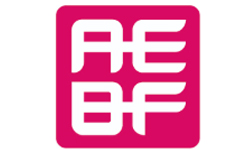 The Asia-Europe Business Forum (AEBF), the official business side event of the 12th Asia-Europe Meeting (ASEM) summit, will bring together on 18 October in Brussels business leaders from Asia and Europe who share the goal of strengthening trade and investment relations between the two continents. It will be a platform to engage with political leaders from both regions and communicate to them concrete ideas on how to tackle today's and tomorrow's challenges and boost economic growth, development and job creation across the two continents. As reflected in the title “Connectivity – Building Bridges between Europe and Asia”, the core theme of this year’s AEBF will be the role of businesses in increasing links between Asia and Europe in view of the present political, economic and technological challenges. For more information on how to register, and on speaking and sponsorship opportunities, visit www.aebf2018.eu
The Asia-Europe Business Forum (AEBF), the official business side event of the 12th Asia-Europe Meeting (ASEM) summit, will bring together on 18 October in Brussels business leaders from Asia and Europe who share the goal of strengthening trade and investment relations between the two continents. It will be a platform to engage with political leaders from both regions and communicate to them concrete ideas on how to tackle today's and tomorrow's challenges and boost economic growth, development and job creation across the two continents. As reflected in the title “Connectivity – Building Bridges between Europe and Asia”, the core theme of this year’s AEBF will be the role of businesses in increasing links between Asia and Europe in view of the present political, economic and technological challenges. For more information on how to register, and on speaking and sponsorship opportunities, visit www.aebf2018.eu
Contact: Maurice Fermont
Calendar
- 8 October: Fifth Assessment Report of the United Nations Intergovernmental Panel on Climate Change
- 9 October: Environment Council
- 18 October: Asia-Europe Business Forum (AEBF)
- 18-19 October: 12th Asia-Europe Meeting (ASEM) summit
Reminder: please take a look at our revised privacy policy
